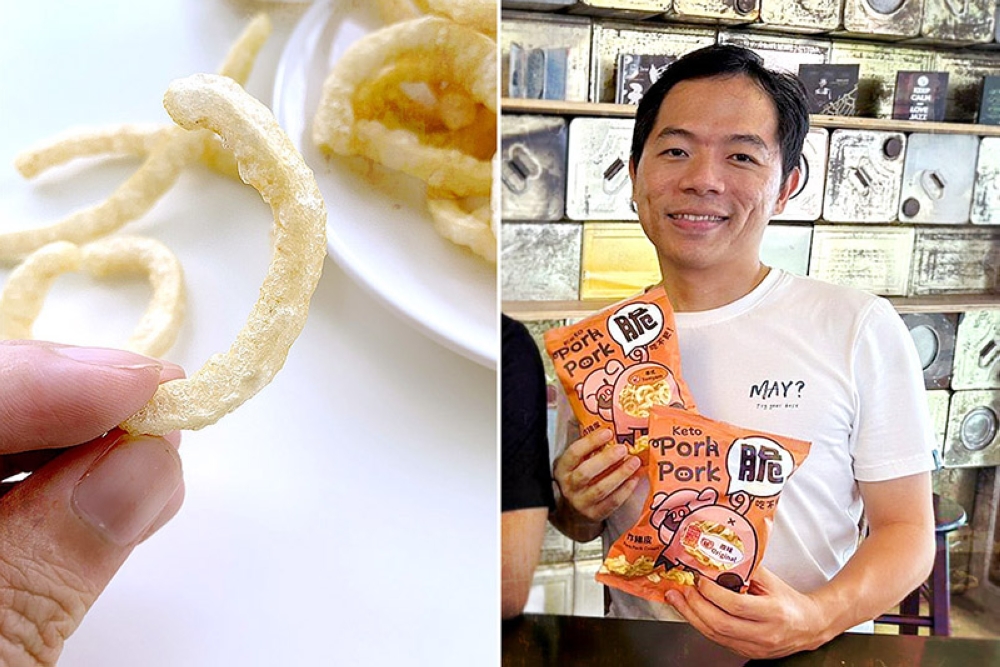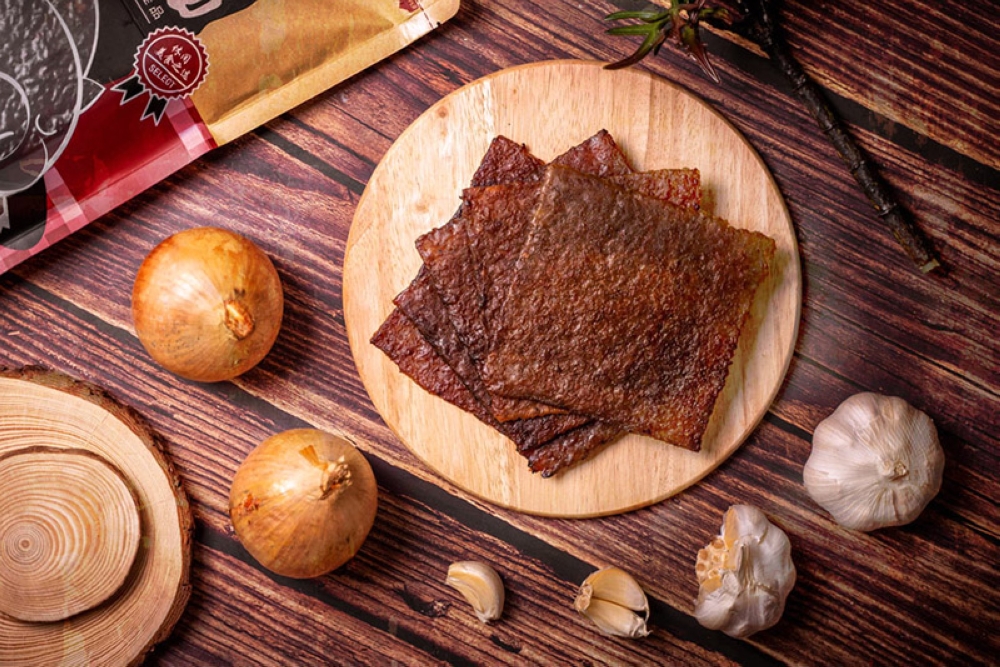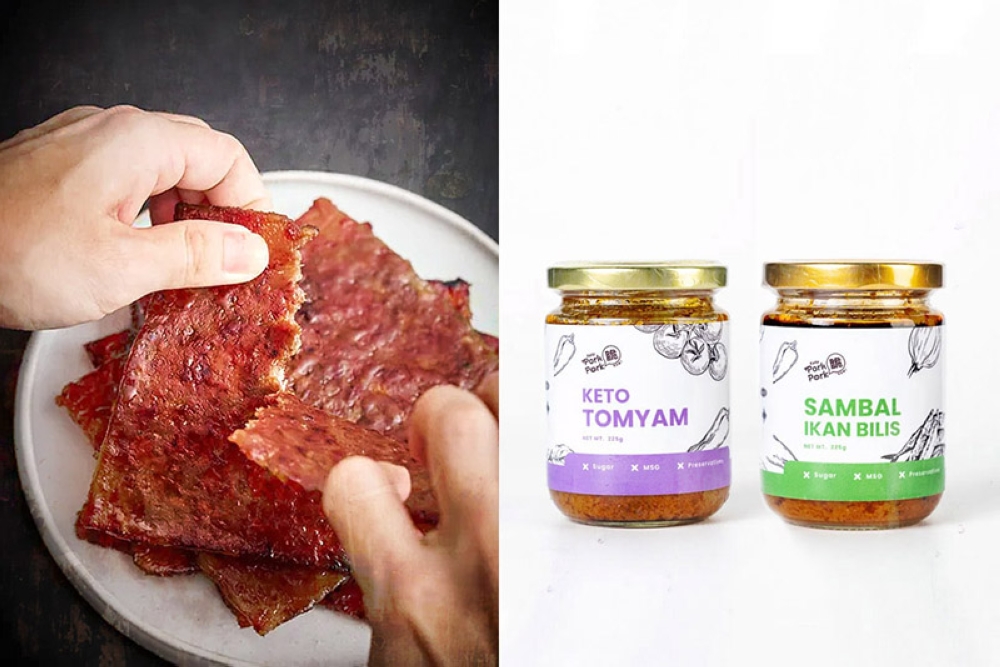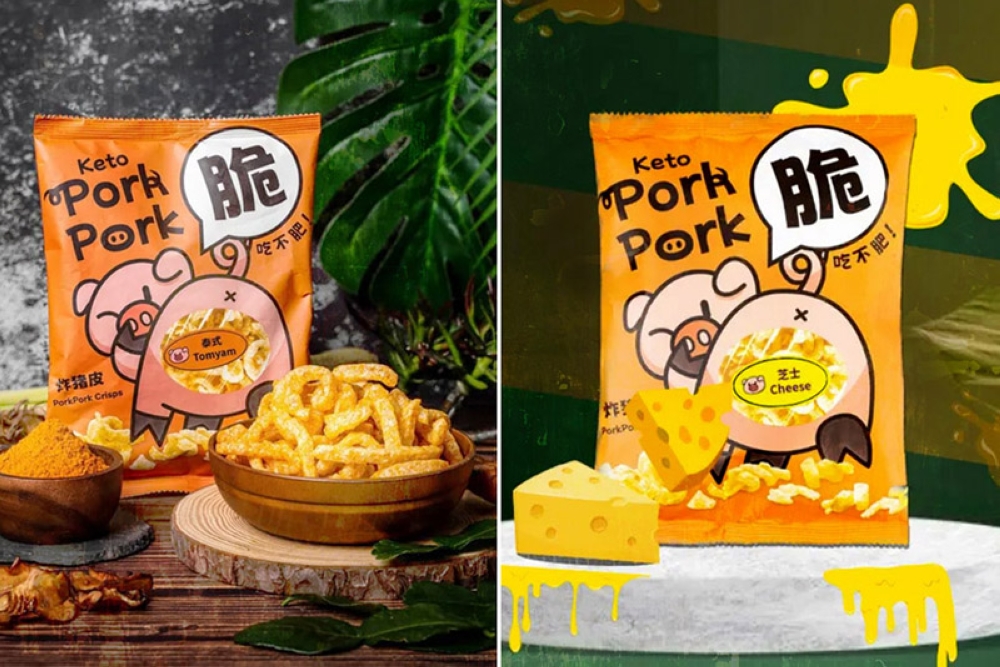
KUALA LUMPUR, Feb 1 — If you walk into a Thai boat noodle shop in Bangkok, chances are you’d spot small packets of crunchy fried pork skin on every table. An easy snack or appetiser before the mains arrive.
Keto Pork Pork hopes to make this snack just as accessible here, with flavours ranging from Original (all the better to experience the crispness of every pork crackling) to Mala, spicy and numbing, infused with the aroma of Sichuan peppercorns.
This homegrown company was founded by Jason Goh and Leong Ying Hsien, both 36, and Professor Lam Hon Loong, 50.
Goh shares, "Prof Lam is responsible for R&D, while Leong and I are responsible for sales and marketing.”
What’s the story behind starting Keto Pork Pork, given its interesting name? Goh explains, "Pork skin has been a by-product from butchers. Every customer requests the butcher to remove the skin before bringing pork back home from the wet market.”
He notes that while some dishes such as bak kut teh and curry mee might include fried pork skin, on the whole most consumers consider pork skin to be high fat and high cholesterol, and therefore not healthy.
Goh disagrees vehemently with this notion. He asserts, "In fact, pork skin is very low carbohydrate and high protein! So we started to look into fried pork skin... first R&D then small scale production for trial amongst our friends and family.”
The trio decided on the name of Keto Pork Pork when they realised that fried pork skin was "no sugar, low carbohydrate and high protein, which is a perfect product for those who practise Keto Diet. We sent the product for lab testing and confirmed the product’s nutritional information.”

Which might seem a bit of a leap for certain consumers given that any pork skin could be considered "no sugar’ and been that way from the beginning. But this is the genius of branding; pointing out what ought to be obvious and marketing it as a valuable feature rather than something that is present by default.
Still, even what ought to be obvious isn’t necessarily the case given the nature of commercial food processing nowadays with plenty of additives to make products more palatable and shelf stable.
It is this exact point that struck Goh. He explains, "We started our first product, fried pork skin. Subsequently, we found out that sugar is everywhere, name it from drinks to food. Sugar has been part of every F&B product.”

Given the health risks of a high sugar diet, Keto Pork Pork expanded their no-sugar product line to include bakkwa and sauces.
Goh admits it was hard-going in the beginning: "We faced a lot of challenges, including high costing which caused high product selling prices, slow product movement causing expiry of stocks, heavy market awareness spending, etc.”
Given it’s now the festive season, they seem primed to reap the rewards of their early endeavours. Bakkwa, for instance, is a must-have during Chinese New Year.
Goh shares, "Bakkwa typically has a very high sugar content in order to preserve the meat and produce a BBQ aroma. So we started our R&D, looking for a solution to remove the traditional white sugar while preserving the same traditional taste and texture of bakkwa.”

The result was Keto Pork Pork’s Zero Sugar Bakkwa, which they launched in 2020. Goh shares, "This year, we are targeting 1 tonne sales only for the Chinese New Year season. I believe we will be able to achieve this target two weeks before Chinese New Year.”
But would seasonal sales be sufficient to keep a business afloat? That assumption was initially shared by the trio, Goh acknowledged.
He says, "We thought bakkwa is only available during Chinese New Year. But since we launched the Zero Sugar Bakkwa, we managed to ‘reverse’ the traditional market trend. Our Zero Sugar Bakkwa sales are quite substantial even in the off season, outside of Chinese New Year.”
Their Keto Bakkwa comes in flavours such as Original, Black Pepper, Chilli and Mala. Besides the fried pork skin (marketed as Pork Pork Crisps) and bakkwa, a third product line is sauces such as Keto Tom Yam and Sambal Ikan Bilis.

Market acceptance didn’t come overnight, however. Goh shares, "Consumers have been overwhelmed with sweet products since they were kids. When we are down, we eat sweets; when we are happy, we eat sweets also. Our mindset and taste buds cannot be switched so easily.”
To bridge this gap, Keto Pork Pork is also eyeing the export market, particularly Singapore. Goh explains, "Their culture and population are very similar, plus the strong currency and strong spending power. Also, we are focusing online only.”
These adjustments allow Keto Pork Pork to expand their market reach while keeping overheads low (no expensive retail outlet rentals). Beyond a catchy brand name, the team understands that, like any other business, they have to prove they can provide sustained value to customers over the long term.

As such they have already rolled out new flavours of Keto Pork Pork Crisps including Seaweed, Wasabi, Tom Yam and Cheese. Might I suggest a Salted Egg Yolk flavour next? It’s not the most original idea but hey, if everyone loves it...
Keto Pork Pork
Web: www.ketoporkpork.com
During Chinese New Year, Keto Pork Pork will be closed from February 9 to 18, and will process new orders from February 19 onwards.
*Follow us on Instagram @eatdrinkmm for more food gems.






















